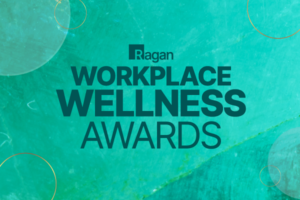Wellness Roundup: Financial wellbeing stress, working with GenZ and more
A snapshot of research, news and data covering human resources, benefits and employee wellbeing.

U.S. adults are stressed about their financial wellbeing
According to a recent CNBC Financial Confidence Survey of just over 4,300 adults, approximately 70% of Americans feel stressed out about their personal finances. Conducted in partnership with Momentive, the data shows that 52% of those surveyed claim that stress increased since before the pandemic began in the U.S.
Highlights from the survey showed that contributing factors include:
- Increased expenses: Inflation has affected many of basic household expenses (59%), while economic-wide instability (43%); rising interest rates (36%); lack of savings (35%); and medical/healthcare bills (27%) round out the top five.
- Weakened confidence in banking system: Recent bank failures have consumers rattled, with only 13% of adults feeling confident in the U.S. banking system and 71% stating they are somewhat to much more concerned about their own finances after news of the banking crises.
- Increasing debt: With the majority of Americans (58%) living paycheck to paycheck, more are utilizing credit cards to cover remaining expenses, but credit card debt is also contributing to financial stress for nearly one-quarter of those surveyed. Credit card debt reached a record $930.6 billion in the fourth quarter of 2022.
- Eroding financial security: More adults are tapping into their financial funds, with only about 45% saying they have an emergency fund and 26% of those funds below $5,000. When asked how much they would need to feel financially comfortable, the majority (58%) stated between $10,000 to $100,000, with 36% of respondents stating they would need $100,000 to feel financially safe.
Check out the full survey results here.
What it means: Financial wellbeing has become a bigger part of the workplace wellness mix. With employees stressed about making ends meet, it affects their health. In turn, it also affects the health of their employer. But employees may be under-educated when it comes to making financial decisions, which could be playing into that stress. A recent poll from the National Endowment for Financial Education (NEFE) states that only 45% of have had an opportunity to take financial education in some setting. When given the opportunity to take a course or training, a large majority took it. Those opportunities were through financial institutions (63%), self-guided courses (85%), employer-based programs (86%), college/universities (87%), and secondary education (91%).
According a NEFE press release:
“Education issues rarely receive the strong-sided support that we find in the results of this polling. When adults are provided effective and equitable access to key financial topics, they do not miss out on the opportunity to learn,” says Billy Hensley, Ph.D., president and CEO of NEFE. “When we combine the results of this poll with other data we have collected and analyzed, we do more than just paint a picture of the need for financial education. We develop a blueprint for a solution.”
GenZ has entered the workplace, managers are finding them difficult to work with
ResumeBuilder.com released the results of a survey of more than 1,300 managers and business leaders. What they found is that about 74% of those leaders found GenZ the most difficult generation to work with. Twelve percent of those leaders fired a GenZ employee within the first week. The major factors, the survey found, were:
- Lack of technological skills (39%)
- Lack of effort, motivation and productivity (37% each)
- Easily distracted (36%)
- Poor communication skills (36%)
- Easily offended (35%)
But it’s not all bad. Adam Garfield, marketing director at Hairbro is quoted as saying:
“Compared to other generations, I find GenZ to be highly innovative, and adaptable. They are not afraid to challenge the status quo and bring new ideas to the table. They also value authenticity and transparency and expect companies to be socially responsible and ethical.
“However, one area where I believe GenZ could improve in the workplace is their communication skills. While they are proficient in using digital communication tools, they may lack some of the interpersonal skills required for face-to-face interactions. GenZers could benefit from developing their communication skills to build stronger relationships with colleagues and clients.”
What it means: Organizations should think about ways to help the next generation of employees gain the skills they need to succeed and grow or face a churn of young employees, unable to replace talent moving on or retiring. GenZ was hit with remote, pandemic employment opportunities, that didn’t lend themselves to the same level of professionalism as previous generations. Employers could easily work with GenZ employees to get their interpersonal communication skills where they should be through training or mentoring programs, helping them take feedback and learn from it, and understand what skills are needed to succeed in the workforce of today.
Who do managers prefer to hire and work with? Millennials (34%)! Wasn’t everyone just bemoaning them?
Organizations might be benefiting from a hybrid workplace
Analysis from Advanced Workplace Associates (AWA) of studies and academic research claims that the average hybrid worker completes almost two extra weeks of work a year for their employer. AWA’s second Hybrid Working Index was released in Dec. 2022 and includes a global study of 220 offices in 33 countries, representing nearly 250,000 employees, showing that employees today are working from home an average of 3.5 days a week.
According to AWA, the numbers suggest that employees work “an additional 101 minutes, or 1.7 hours, a week. Over a typical working year of approximately 45 weeks, this would equate to 75.6 extra hours of work, or just over 9.5 days — that’s nearly two whole work weeks, assuming an eight-hour day.”
Additionally, the National Bureau of Economic Research has found that workers not going into an office save an average of 72 minutes a day by avoiding the commute. Of this extra time, they dedicate 40% of that time to their jobs and 11% to caregiving.
Why it matters: The employee mindset has changed, and so too must the workplace. Job seekers are looking for flexible opportunities, seeing rigid in-office requirements as unappealing. A hybrid workplace gives employees better work/life balance, improves their wellbeing but employers are getting more productivity out of employees when remote and it’s an opportunity for employers to create collaborative workplaces to foster teamwork when everyone is in the office together.
Jon Minnick is a conference and awards event producer and workplace wellness writer. He identifies as a Xennial.







